THE FARM COOKING SCHOOL

TECHNIQUES AND RECIPES THAT CELEBRATE THE SEASONS
Ian Knauer and Shelley Wiseman
PHOTOGRAPHY BY GUY AMBROSINO


INTRODUCTION

A lmost every day, a dozen eager cooks gather in an airy open kitchen a scant mile up the eastern bank of the Delaware River. They smell, taste, and work with the freshest ingredients, many of which come from the land just outside the kitchens paned windows. Light and laughter bounce off the wide floorboards and maple chopping blocks as we bake and cook, preserve and stew, whisk, chop, and eat. And when the cooks leave, they are better cooks. Eventually, they will be great cooks.

Its a common assumption that some come into this world gifted at the range. There is a shadow of unease over the faces of the first-timers, as if they believe they were born without the touch. But thats hogwash. Not one of us is born a great cook. There are cooks who learn faster and cooks who learn slower. Some cooks learn by tasting, and others learn by reading. There are cooks who learn by traveling and those who learn by slicing and washing. But anyone can learn to cook. In fact, anyone can learn to be a great cook. (And great cooks never stop learning.) There are only two tools you need: curiosity and confidence. That curious confidence is the most important thing we teach at The Farm Cooking School.
Walk into your kitchen and open the refrigerator. Dont just lookthink about each condiment and container of leftovers. Think about the staples in the pantry. Do you have eggs? Milk? Cream? Sugar? Salt? Flour? There are a thousand dishes you can make with just those ingredients. You dont know all of themno one doesbut you can learn many of them starting today.
Place a skillet on the range. Pull out a pot. Preheat the oven. With just those tools you can sear, saut, braise, bake, roast, stew, poach, toast, and broil.
Now leave the kitchen. Take a look at a piano or a guitar. There are twelve notes in a scale. From those few notes, an infinite number of songs can be created. How many instruments, such as a pot or a toaster oven, do you have in your kitchen right now? How many ingredients? Its more than twelve. You already have everything you need to be a cookthat is, if youre curious and confident.
Confidence grows through practice and repetition, something we learned during our professional lives in the years before we opened the cooking school. We first met at Gourmet magazine, when the test kitchen needed a curious home cook who lacked knowhow, someone short on technique who would make mistakes. They already had a team of nine confidently curious cooksthe proswho wrote and developed the recipes. They needed a dummy in the kitchen. That dummy was Ian.
Each day, he was handed a stack of recipes and did his best to follow them. Sometimes they would turn out just as they should. Often, they would not. When that happened, the pros went back to change the language or a technique so that a dummy in the kitchen would get it right.
One of those pros was Shelley. Shelley had cooked professionally in France and Mexico, co-authored a tome of Mexican cuisine, and run her own cooking school there. She is a stickler for technique. Early in Ians tenure, Shelley shared this wisdom with him: There are a thousand little steps in every recipe. If you have perfect technique, the recipe will be the same every time. If you make one slight change, maybe no one can tell the difference. If you make five changes, I will know. If you make a hundred changes, its a different dish. As Ian began to understand, technique is something anyone can learn. Once you have it in you, you wont need a recipe. It is the soil from which confidence grows.
Fast-forward a dozen or so years. Ian, now a pro himself, had left New York City for the Delaware River Valley and wanted to open a cooking school. He was motivated by three reasons. The first was selfish: he needed a creative space to play with food and keep learning. The second was selfless: he wanted to share what he had learned in the kitchen to help other curious cooks become great cooks. The third reason was practical: the school could be a way to make a living doing what he loves in a place where he loves living.
He soon stumbled upon a field stone farmhouse, built in the early 1700s, which sat in the center of a hill on Tullamore Farms, a working grass-fed cattle and beef farm. He got to work renovating the space and building a teaching kitchen that is open and full of light. The farmer plowed a plot for a garden just a few steps from the farmhouse. Ian scoured the farm for cast-off materials to build a fence to keep the sheep out of the arugula and to build a chicken coop. He worked with a local seed company and gardener to design and build a potager-style garden. All the while, he hosted dinners in different locations as a way to get the word out about the school. At first, he wondered how many people would be interested in attending cooking classes in an out-of-the-way corner of New Jersey. But lo and behold, people started signing up for classes.
It was sometime in May of that year when Shelley called. She was bored at her job and looking for a new adventure. So she came down for a visit, which quickly turned into helping create the Farms official opening dinner. While Ian was busy installing a toilet aided by a YouTube video, Shelley got to work sourcing local ingredients and planning the dishes for a fusion Mexican experience. The dinner sold out, we started getting regular students, buzz began, and The Farm Cooking School was born. Now we run the school together in an expanded location, leading thematic classes that gather regularly over a number of weeks, as well as single classes and farm dinners.
In the summer, classes start in our garden. In this labyrinth of raised beds, sorrel carpets the ground beneath the blueberry bushes, ground cherries topple when just ripe, and cherry tomatoes blush and glow in the suns adoration. We harvest what we need for the class and walk back to the kitchen.
For the things our own plot doesnt provide, we turn to our neighbors. There is a good reason New Jersey is called the Garden State. Within a ten-mile radius of the school, there are dozens of farms, from fruit orchards and organic vegetable farms to flower growers, dairies, and meat farms. These are the same farms youll find at New Yorks Greenmarkets and Phillys farm stands. And, happily, this sort of thing is happening everywhere. We are in the midst of the greatest time for American food. Small farms are coming back stronger than ever all over the country. For the first time in a hundred years, many Americans have fresh, local ingredients at their fingertips. Now we just need to know what to do with them.


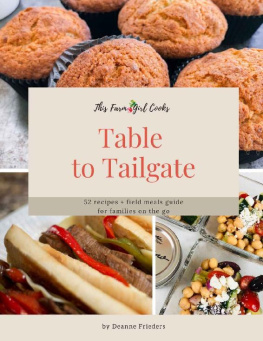
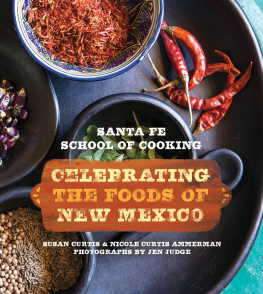
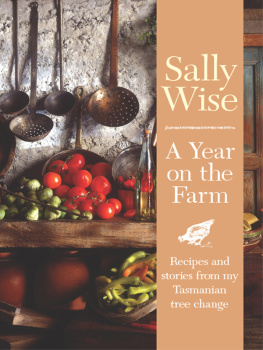

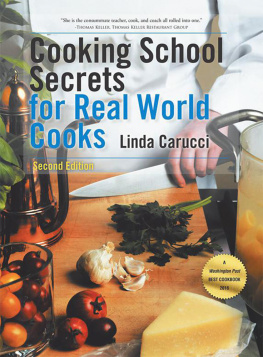
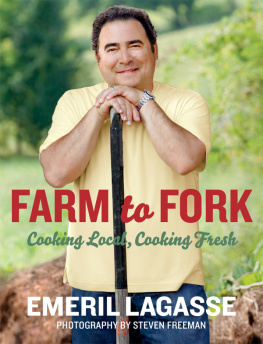
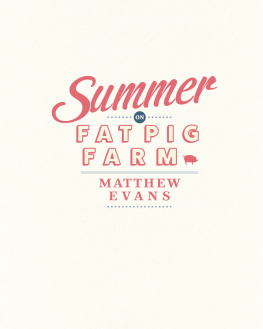

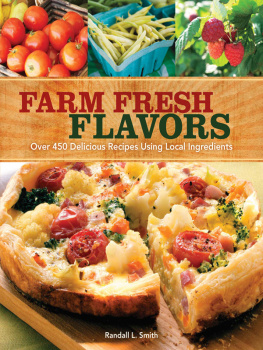
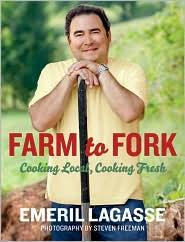
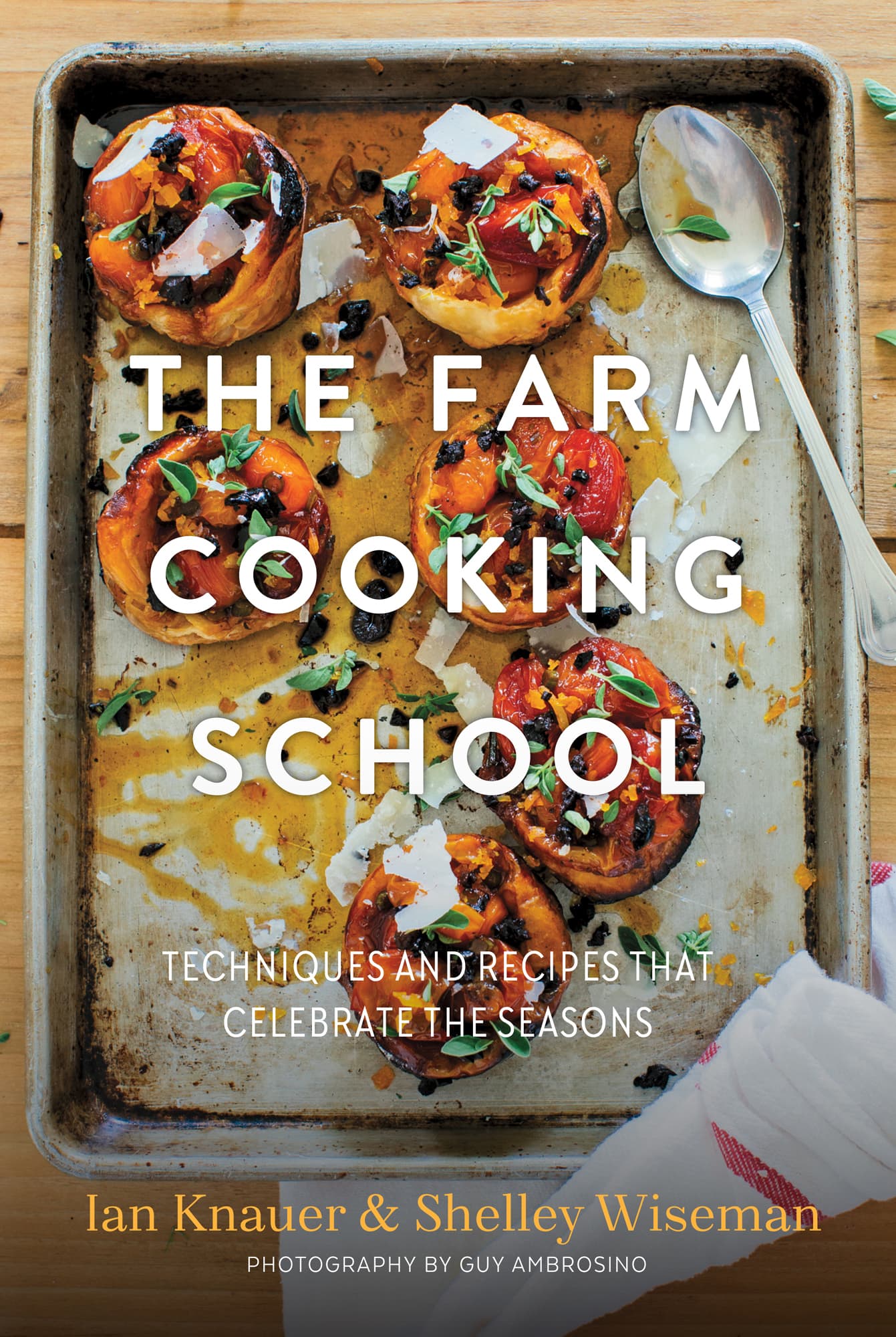






 INTRODUCTION
INTRODUCTION 
